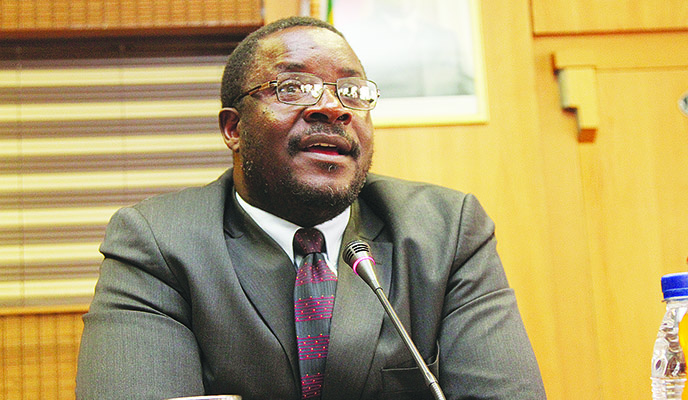
THE main opposition MDC-T yesterday said its MPs would resist attempts by Zanu PF to introduce restrictive media laws.
BY RICHARD CHIDZA
This follows threats by President Robert Mugabe’s spokesperson George Charamba to lobby parliamentarians to keep the private media under leash.
MDC-T spokesperson Obert Gutu said his party was “not angry with any newspaper” contrary to claims by Charamba that the country’s two biggest political parties were angry with the private media and would work together to craft tough media laws.
Gutu accused Charamba of trying to take the country “back to the Stone Age”.
“Charamba must have taken leave of his senses. We are not living in the Stone Age where he [Charamba] would like to operate as a latter-day Josef Goebbels. The MDC-T will strenuously oppose any machinations to muzzle freedom of the Press. We shall ensure that Charamba’s delusional and Stalinist agenda to come up with repressive media legislation will never see the light of day,” Gutu said.
Zanu PF spokesperson Simon Khaya Moyo refused to be drawn into whether the ruling party was angry with the media or would support a shift in legislation.
“It was him (Charamba) speaking, not the party. Engage him on that,” Khaya Moyo said when contacted for comment.
- Chamisa under fire over US$120K donation
- Mavhunga puts DeMbare into Chibuku quarterfinals
- Pension funds bet on Cabora Bassa oilfields
- Councils defy govt fire tender directive
Keep Reading
Charamba in an interview with a State weekly claimed there was anger within the ruling party and opposition that he would use to recommend changes to the country’s media laws.
“Now there is anger in the opposition against the private media and there is anger in the ruling party against the same,” Charamba was quoted as saying.
“I will recommend most effective ways of controlling errant behaviour in the newsroom. So you will have a piece of legislation that seeks to restrain rather than to enable media practices.
Now it’s not in the long-term interest of the media to begin to threaten political players.”
Zimbabwean journalists have groaned under the weight of harsh Press laws in the past decade and a half following the enactment of the Access to Information and Protection of Privacy Act and Public Order and Security Act.
Media Institute of Southern Africa chairperson Kumbirai Mafunda in a statement yesterday said Charamba’s comments were meant to forestall realignment of the country’s vilified media laws with the new Constitution.
“Charamba’s statements laid bare hideous intentions to muzzle the private media from reporting on the goings-on in the ruling Zanu PF, which is reportedly riddled with factionalism,” Mafunda said, arguing that Charamba was in denial over intense infighting in the ruling party.











